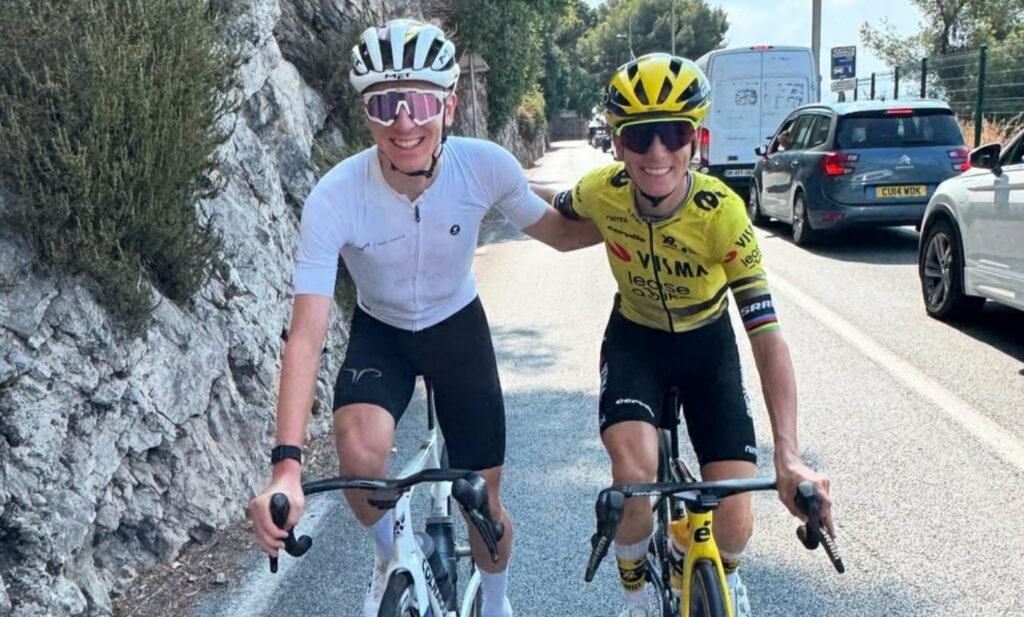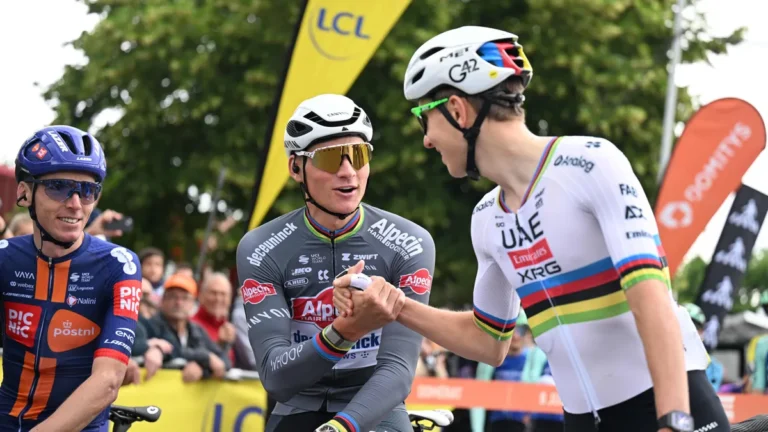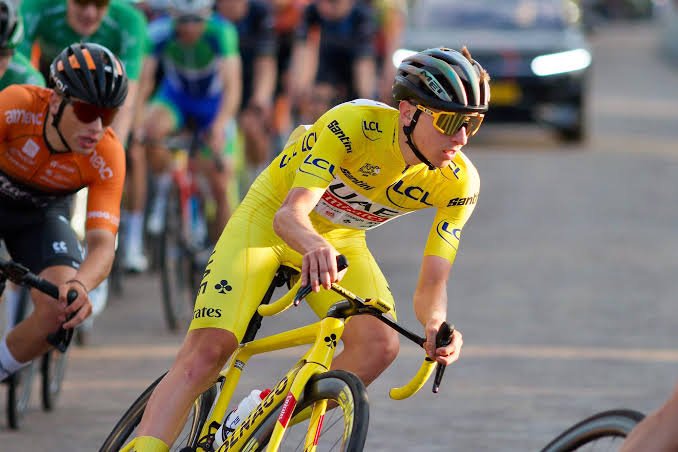
Spanish legend Miguel Indurain, who won five consecutive Tour de France titles, has shared his thoughts on Tadej Pogacar’s potential to join him as one of the race’s most celebrated champions. Pogacar secured his fourth Tour win last month, now only one victory away from equaling Indurain’s record and matching the all-time best held by Indurain, Jacques Anquetil, Bernard Hinault, and Eddy Merckx. In an interview with EFE, Indurain stated that he believes the Slovenian will soon secure his position in the sport’s “Olympus,” although he cautioned that mental fatigue could be a more significant challenge than physical barriers.
When it comes to modern cycling’s upper echelon, few names shine as brightly as Tadej Pogacar’s. Drawing closer to legendary status, Pogacar’s recent triumph puts him within arm’s reach of matching the exclusive five-time Tour de France benchmark. In a revealing conversation with Spanish news agency EFE, Miguel Indurain—one of the sport’s icons—spoke candidly about the Slovenian’s future, acknowledging both his talent and the inner pressures that accompany long-term dominance.
Indurain, a five-time Tour winner, conveyed deep admiration for Pogacar’s achievements, saying that at his current pace and form—assuming he remains healthy and motivated—the youngest generations of cycling fans would come to see him as part of the sport’s pantheon. “If he’s healthy and motivated,” Indurain said, “he’ll be the one who challenges himself to the maximum.” This recognition highlights the sheer mental grit required to succeed repeatedly in professional cycling, where physical prowess is only half the battle.
He went on to emphasize the immense discipline cycling demands from its competitors—starting young, training relentlessly, maintaining physical health, and balancing psychological resilience. “Completing the race, whether quickly or slowly, relies on your desire to finish. You must exert yourself greatly, train rigorously, and maintain your health,” Indurain explained, pointing out that even the most gifted riders can succumb to exhaustion, anxiety, or the crushing weight of expectations.
When questioned whether he could empathize with Pogacar’s repeated mentions of retirement and signs of fatigue, Indurain did not hold back. He identified three factors that commonly wear down elite cyclists over time: “The travel, the pressure of competition, and the ongoing threat of falls.” He added that these endure well beyond the physical strain of racing; they gnaw at the spirit.
“These are challenges you must continue to face until you grow weary,” Indurain stated. “Some bear more while others bear less.” He highlighted that success at the top tier of the sport demands unwavering dedication—not just in terms of training regimen but also in cultivating a passion for cycling that can weather burnout. “A cyclist must believe in what he’s doing with passion and motivation. He will shape the nature of his athletic career.”
Turning his attention to the current racing landscape, Indurain noted that every athlete follows a different path—from early-season ambitions to strategic late-season form. “At this point, we’re examining who will complete the task and the method of their completion,” he said, pointing to ongoing races such as the Tour of Poland, the Tour of Norway, and the Vuelta a Burgos as key indicators of where form and momentum could shift. He added that some riders treat late-season races tactically—those who missed out on the Giro or didn’t hold form in the Tour of France often aim to rebound with strong performances in the Vuelta.
Reflecting on the evolution of the sport itself, Indurain was struck by how modern cycling has accelerated in speed, intensity, and sophistication of equipment. “Sports are evolving, becoming quicker, more intense, and lighter,” he observed. “Everything is getting better, from the pace to the roads, the tires, and the gear.” For Indurain, this evolution represents a shared human impulse—athletes always pushing to reach their maximum.
Looking back on his own era, Indurain remembered key technological shifts: “We transitioned to automatic pedals, time trial bottles, and helmets.” The bike world he raced in was once groundbreaking for its time; today, he said, improvements include advanced aerodynamics and electronic components—a constant, ongoing enhancement in the name of performance.


